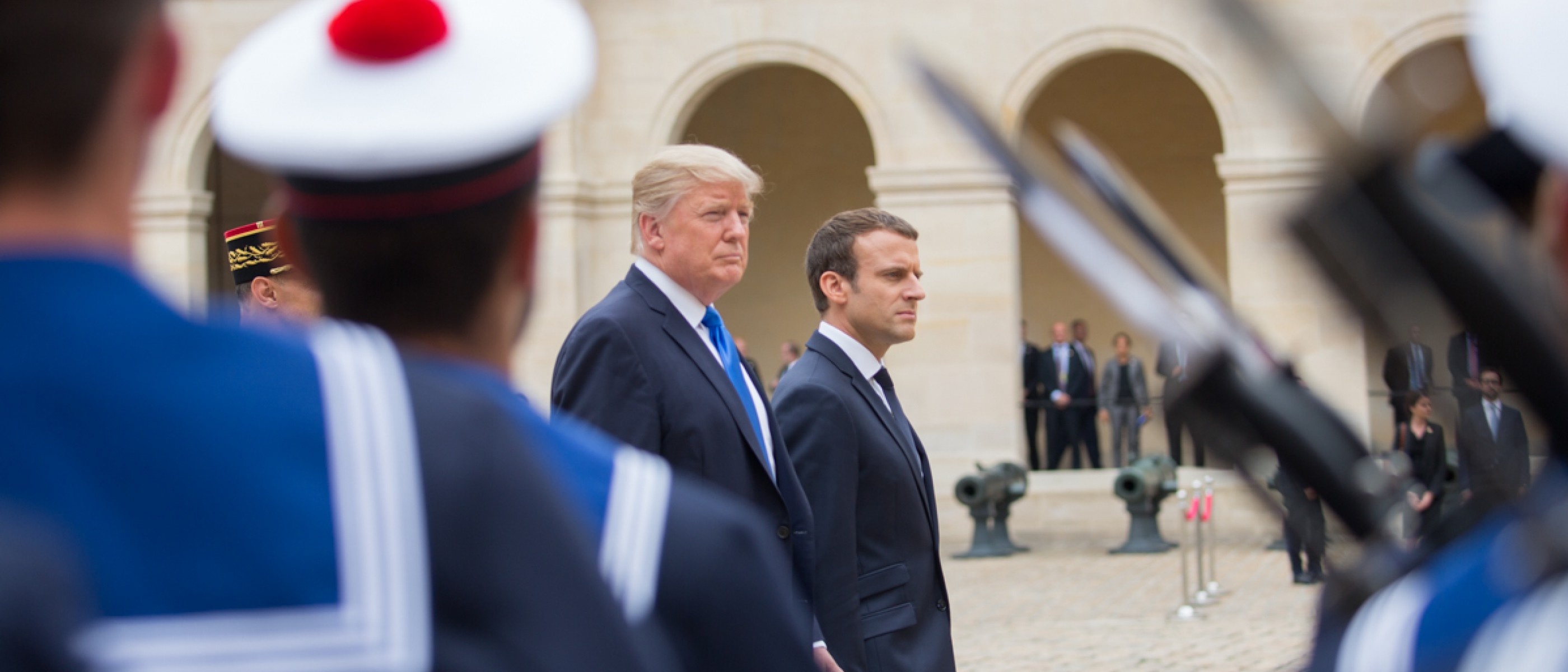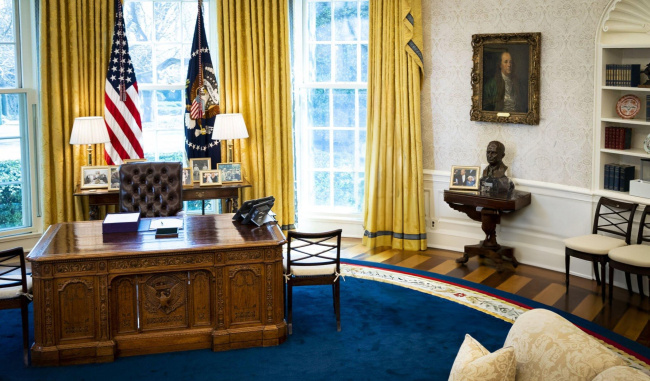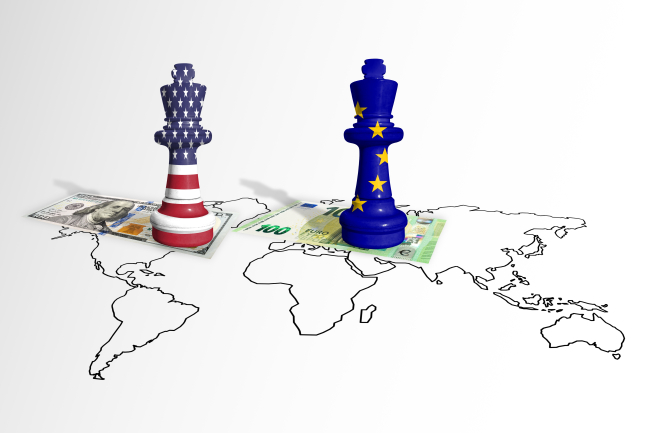Trade Wars: A French Perspective
The Section 232 tariffs on steel and aluminum announced by the United States in March would, if applied, have little direct impact on the French economy, but rather point toward a broader trend of protectionism and economic nationalism and a widening gap in transatlantic relations that is likely to have far-reaching implications for France.

More than the tariffs themselves, it is the radical shift in America’s international role – from a core driver of a liberal, multilateral order to a unilateralist disruptor – that is the most problematic. Washington’s incessant beating on the war drums of trade across the globe and the broader unilateralist stance taken by the Trump administration on questions such as climate change or Iran (JCPOA) have severely undercut efforts to confront global challenges in a constructive manner.
The direct and indirect impacts of a trade war
While steel and aluminum are indeed symbolic sectors, French exports of these products to the US totaled only USD 711 million in 2017, accounting for just 1.6% and 1.3% of all US steel and aluminum imports, respectively. Should Washington decide to remove exemptions for the EU, France could expect a direct, initial loss of roughly USD 200 million, according to calculations compiled by CEPII. While this remains rather insignificant in overall terms, the effects of trade displacement would perhaps be more painful, as global supplies of steel and aluminum (already in a glut) seek out other markets (particularly in Europe). Yet the role of these sectors in the French economy has been in steady decline for decades. The impact would be larger for others in Europe – for instance Germany – and France’s position so far has been to support a strong European stance on this issue.
Since US president Donald Trump’s decision on 8 May to withdraw from the JCPOA on Iran, new questions have surfaced over the potential for a broader economic fallout between Europe and the United States. The risks of a transatlantic trade war over Iran are rather minimal, however, and French president Emmanuel Macron has explained that France has no intention of starting a trade war with Washington over the JCPOA. Indeed, the ultimate goal is a successful resolution of the Iranian nuclear question, and perhaps some form of broader agreement relating to Iran’s ballistic missile program and its support for terrorism. These will be unlikely without a return of the US and exchanging sanctions or sparking a trade war with Washington would not be likely to achieve France’s goals.
A broken partnership?
The rise in economic tensions, including the refusal of the US so far to grant a permanent exemption to the EU from Section 232 tariffs on steel and aluminum, has shown the clear limits of president Macron’s efforts to build a close personal relationship with Donald Trump. (President Trump was made guest of honor at France’s Bastille Day parade last July, and treated the French president with the first official state visit of the Trump presidency in April of this year.) Indeed, the argument underpinning the Section 232 tariff measures relates to US national security, and yet France and many other European NATO allies are made to grovel repeatedly before Washington. Moreover, the narrow focus of the Trump administration on tariffs and trade imbalances is a concern. The French Trade Minister, Jean-Baptiste Lemoyne, has explained that France rejects the notion of limited negotiations on tariffs and would push to see broader-based negotiations with Washington on trade liberalization. A key goal for France will be to ensure that the Trump presidency doesn’t completely undo the rules-based system of international trade.
Macron’s bet on globalization must pay off
The political stakes for France, and for President Macron in particular, are high. Macron’s election was hailed as a stop-gap to the wave of populist, nationalist advances in Europe that began even before Brexit, driven in large part by what is seen as the excesses of liberal capitalism and globalization gone wild, which culminated in the global financial crisis. Yet Macron’s victory over populism is only tentative, as the most recent elections in Italy clearly suggest.
Since his election, Macron has embraced a European future for France and a view of economic liberalization that has so far translated into a series of contested economic reforms at home. His bet is that by making the French economy more flexible and competitive on the global stage, France can position itself as a leader in the industries of the future and be in a better position to define the rules for the next wave of globalization – one in which rapid technological advances are likely to have profound social, economic and political implications. Macron sorely needs this bet to pay off. It should not be forgotten that in the first round of the 2017 presidential election, 45% of French voters opted for candidates on either the extreme right or extreme left, and that skepticism remains high more than a year after Macron’s election.
If the French president is unable to provide tangible results for his vision of a globalized France, his victory over populism could very likely be short lived. This task is made all the more difficult when Washington holds a narrow view of American interests.
This article was originally published on the website of the Italian Institute for International Political Studies (ISPI) -- Trade Wars: A French Perspective

Available in:
Regions and themes
Share
Related centers and programs
Discover our other research centers and programsFind out more
Discover all our analysesDonald Trump v. the States: the Case of New York
While the disruptive policies of the second Trump administration are being implemented at the federal level and on the international stage, they are also being felt in the federal states and major cities across the country. In the spring of 2025, several cases involving the state and city of New York demonstrate that the president’s attacks on environmental protection, the separation of powers, freedom of speech, etc., are also being carried out at the local level.
How the US under Trump Became a Strategic and Ideological Adversary of Europe
The Europeans' worst security nightmare seems to be coming true: on Tuesday, February 18, 2025, U.S. Secretary of State Marco Rubio and Russian Foreign Minister Sergey Lavrov met in Saudi Arabia to initiate the normalization of relations between their two countries. The meeting also aimed to set up peace negotiations for Ukraine. However, despite having the potential to affect the entire continent, the discussions took place without the Europeans or the Ukrainians being present.
Will Trumpian Authoritarianism Lead to a Constitutional Crisis?
Since his return to the White House on January 20, 2025, President Donald Trump has signed around sixty executive orders to implement his political agenda. Numerous other measures have also been introduced by the White House and the new Department of Government Efficiency (DOGE) as part of these orders.
Trump’s Second Term: Laying the Groundwork for a New Trade War
In a statement released on February 1, 2025, President Trump announced the implementation of a 10% tariff on Chinese goods and a 25% tariff on imports from Canada and Mexico. While the former took effect via executive order on February 4, the latter were granted a 30-day reprieve. Sanctions targeting European Union (EU) products are said to be imminent.











